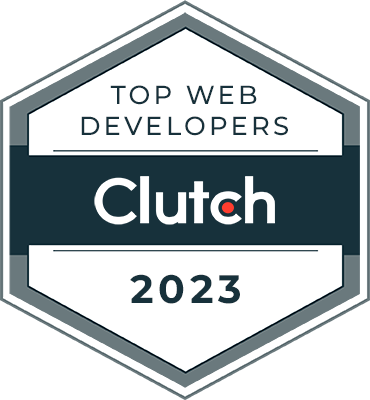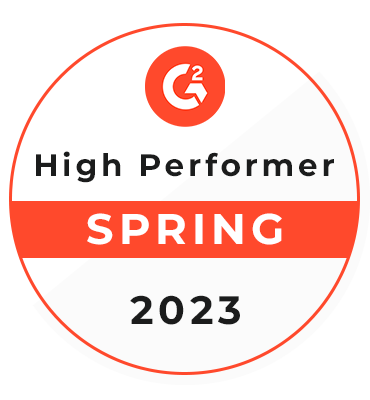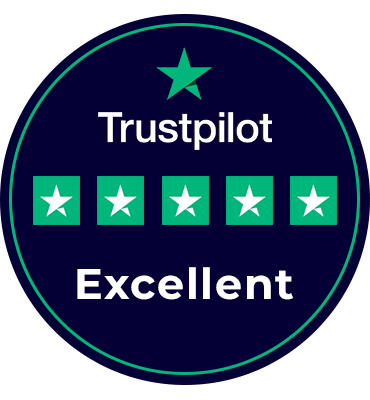Minimum Viable Product Development for Mobile Apps in the UK
Shyam Singh
Last Updated on: 23 September 2025
The UK mobile app industry is booming, with businesses across sectors investing in digital products to engage customers, streamline operations, and generate revenue. But creating a full-featured mobile app from day one can be risky, costly, and time-consuming. That’s why Minimum Viable Product (MVP) development for mobile apps has become the go-to strategy for UK startups, SMEs, and even enterprises.
An MVP allows businesses to launch a simplified version of their app containing only the core features needed to solve a specific problem. This strategy validates ideas, attracts early users, and minimizes risks before scaling into a fully functional product. Combined with Agile development, MVPs help companies innovate quickly while keeping budgets under control.
In this article, we’ll cover everything UK businesses need to know about MVP mobile app development—its definition, benefits, process, cost, technologies, real-life examples, and how to choose the right partner.
What is an MVP in Mobile App Development?
An MVP is the simplest version of a mobile app that delivers the most critical features needed to solve a user’s problem. It’s not a prototype or a demo—it’s a working product that customers can use.
Prototype vs MVP: A prototype is a clickable design or mock-up used for validation, while an MVP is an actual functional app that users can interact with.
Purpose of MVP: To validate assumptions, gather real-world feedback, and reduce development risks.
For UK businesses, an MVP is a way to test market demand before investing heavily in full app development.
Benefits of MVP Development for Mobile Apps in the UK
MVP development is widely embraced by UK startups, fintechs, healthcare providers, and eCommerce companies. Here’s why:
Faster Time-to-Market
Launch a simplified app quickly to capture early adopters and stay ahead of competitors.
Cost Savings
Focus on core features, avoiding unnecessary expenses in the initial phase.
Risk Mitigation
Validate business ideas before committing significant financial and human resources.
Customer-Centric Development
Collect feedback directly from UK users and build features they truly want.
Investor Confidence
A functional MVP demonstrates traction and helps secure funding more easily.
Scalability
Iteratively add new features based on user needs and business growth.
The MVP Development Process for Mobile Apps
A structured MVP development process ensures success. Here’s how UK businesses typically approach it:
1. Idea Validation & Market Research
Before writing a single line of code, businesses validate their concept through:
- Market research reports
- Competitor analysis
- User surveys & interviews
- SWOT analysis
Example: A UK startup planning a food delivery app would analyze competitors like Deliveroo or Just Eat to identify gaps.
2. Defining Core Features
List all possible features and prioritize them using techniques like the MoSCoW method (Must-have, Should-have, Could-have, Won’t-have).
Core features: Login/registration, menu browsing, cart, payment.
Future features: Loyalty programs, AI recommendations.
3. UI/UX Wireframing & Design
Build wireframes and simple designs that focus on usability and clarity.
4. Agile Development Sprints
Development teams break tasks into short cycles (1–3 weeks). Each sprint delivers a usable version of the app. Agile methods allow flexibility in adjusting scope as feedback comes in.
5. Testing & Quality Assurance
Continuous testing ensures the MVP works seamlessly:
- Unit Testing
- Integration Testing
- Usability Testing
- User Acceptance Testing (UAT)
6. Launch & Feedback Collection
Release the MVP to a limited audience in the UK. Gather insights via analytics, feedback forms, and interviews.
7. Iterative Improvements
Enhance features, fix bugs, and plan new functionalities based on real user behavior.
Key Principles of Successful Mobile App MVP Development
- Build only what is necessary – Focus on solving one core problem.
- User-Centric Approach – Design based on actual customer pain points.
- Feedback Loops – Collect and act on feedback continuously.
- Scalability in Mind – Ensure architecture allows easy expansion.
- Rapid Iteration – Short cycles for fast delivery and testing.
Technologies & Tools for MVP Mobile App Development in the UK
The choice of tech stack affects speed, scalability, and cost. Commonly used technologies include:
- Frontend (Mobile): Flutter, React Native, Swift (iOS), Kotlin (Android)
- Backend: Node.js, Django, Ruby on Rails, Firebase
- Databases: PostgreSQL, MongoDB, MySQL
- DevOps & Hosting: AWS, Azure, Google Cloud
- Analytics & Feedback Tools: Mixpanel, Firebase Analytics, Hotjar
UK businesses often prefer cross-platform frameworks like Flutter or React Native to save time and cost.
Cost of MVP Mobile App Development in the UK
The cost depends on complexity, features, and the development partner.
Factors Affecting Cost:
- App Type: Simple vs complex (e.g., social media, fintech, healthcare).
- Features: Basic features cost less, while integrations (AI, AR, payments) increase costs.
- Team Expertise: Hiring senior developers in the UK costs more than outsourcing.
- Timeline: Shorter timelines may increase development costs.
Estimated Cost Ranges in the UK:
- Simple MVP App: £15,000 – £30,000
- Medium Complexity MVP: £30,000 – £70,000
- Complex MVP (fintech, AI, multi-integrations): £70,000+
Common Challenges in MVP Development (and Solutions)
Scope Creep – Too many features get added.
Solution: Stick to the MVP roadmap and prioritize.
Insufficient User Feedback – Lack of data makes iteration difficult.
Solution: Engage beta testers and target users early.
Technical Debt – Rushed coding can cause issues.
Solution: Follow best practices, code reviews, and automated testing.
Poor UI/UX – Users abandon apps with bad design.
Solution: Invest in user-centered design.
Real-Life UK Success Stories
- Revolut – Started with a basic currency exchange MVP, now a global fintech giant.
- Monzo – Launched with simple banking features, later added advanced tools.
- Deliveroo – Began as a simple food delivery MVP, now a UK household name.
These stories highlight how MVPs reduce risk and build scalable businesses.
Choosing the Right MVP Development Partner in the UK
When selecting a development company, look for:
- Proven track record of successful MVPs.
- Agile expertise to handle iterations.
- Strong technical proficiency in mobile frameworks.
- Transparent communication and client collaboration.
- Post-launch support for scaling.
👉 Fulminous Software is a trusted MVP development company in the UK, helping businesses validate ideas, reduce risks, and build scalable apps across industries like fintech, healthcare, and eCommerce.
Future of MVP Mobile App Development in the UK
- AI-Powered MVPs – Personalization and automation at scale.
- No-Code/Low-Code Platforms – Faster MVP creation for non-technical founders.
- Cloud-Native Apps – Leveraging AWS, Azure, and Google Cloud for scalability.
- Blockchain & Web3 Integrations – Secure, decentralized apps.
Conclusion
MVP development is the smartest way for UK businesses to validate ideas, minimize risk, and accelerate app launches. By focusing on core features, leveraging Agile methodology, and gathering continuous feedback, companies can build mobile apps that resonate with users and scale effectively.
Whether you’re a startup, SME, or enterprise, adopting MVP development ensures you invest wisely, save costs, and maximize ROI.
👉 Looking to build your MVP mobile app in the UK? Partner with Fulminous Software to transform your idea into a market-ready success.
FAQs on Minimum Viable Product Development for Mobile Apps in the UK
What is the difference between an MVP and a prototype?
A prototype is a non-functional design used for testing concepts, while an MVP is a working app with essential features.
How long does it take to build an MVP app in the UK?
On average, 8–16 weeks, depending on complexity, team size, and features.
What industries benefit most from MVP mobile app development?
Fintech, healthcare, eCommerce, logistics, education, and on-demand services.
Can enterprises use MVP development, or is it only for startups?
MVPs are valuable for both startups and enterprises—enterprises often use them to test new products with minimal investment.
How much does an MVP mobile app cost in the UK?
Costs range from £15,000 to £70,000+, depending on complexity, features, and team expertise.
Is MVP development suitable for both Android and iOS apps?
Yes. With cross-platform tools like Flutter and React Native, you can launch MVPs on both platforms simultaneously.
How do UK businesses gather feedback for MVPs?
Through beta testing, surveys, analytics, user interviews, and A/B testing.
Why should I hire a professional MVP development company in the UK?
Professional companies like Fulminous Software ensure quality coding, Agile processes, scalability, and post-launch support—saving time and reducing risk.

 Verified
Expert in Software & Web App Engineering
Verified
Expert in Software & Web App Engineering
I am Shyam Singh, Founder of Fulminous Software Private Limited, headquartered in London, UK. We are a leading software design and development company with a global presence in the USA, Australia, the UK, and Europe. At Fulminous, we specialize in creating custom web applications, e-commerce platforms, and ERP systems tailored to diverse industries. My mission is to empower businesses by delivering innovative solutions and sharing insights that help them grow in the digital era.
Partner with Top-Notch Web Application Development Company!
Discuss your Custom Application Requirements on info@fulminoussoftware.com or call us on +1-903 488 7170.
15 Days Risk-Free Trial

